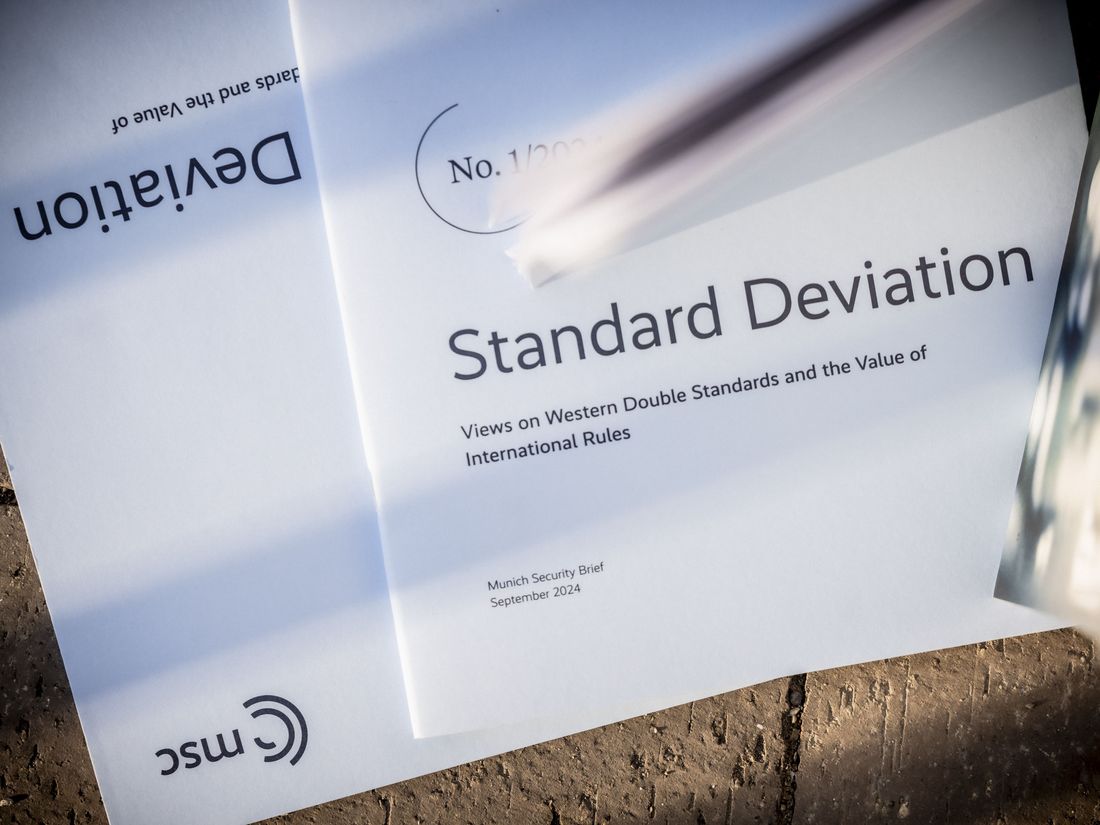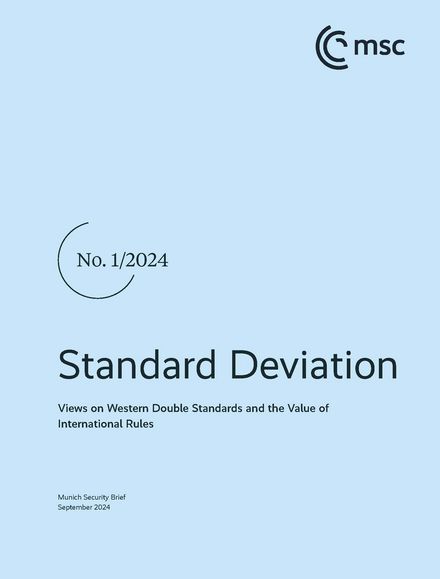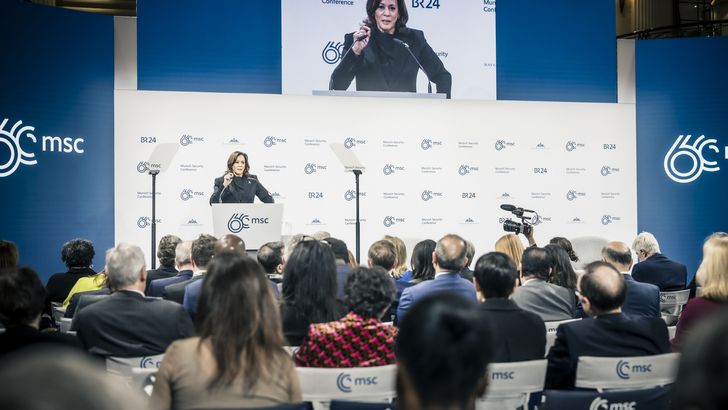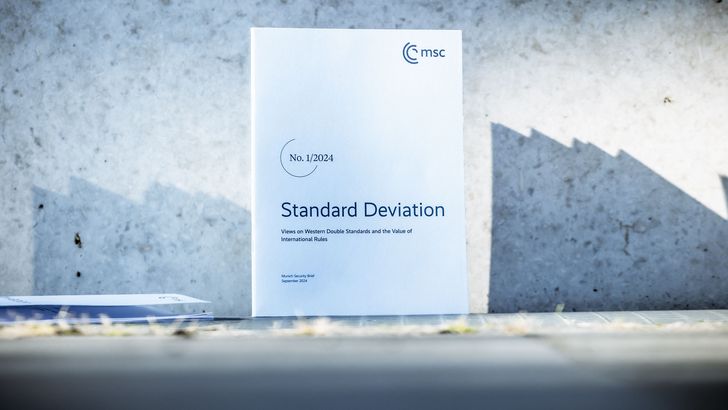

Standard Deviation
Views on Western Double Standards and the Value of International Rules
Accusations that the West is guilty of double standards seem omnipresent these days. According to many governments in the so-called Global South, Western states all too frequently deviate from their ostensible foreign policy principles or follow them inconsistently. But criticism of Western double standards has not only become more vocal. It has also become a proxy debate about the value of universal rules and principles as such.
Governments in many parts of the world have expressed concern that, at a time of growing geopolitical competition, Western states are reducing their commitment to international rules and principles. Some of them, African states in particular, have borne the brunt of alleged Western hypocrisy, which includes the experience of vaccine apartheid. But not all those alleging hypocrisy actually seek to push the West into greater normative consistency and strengthen international standards. Instead, they use their criticism to relativize their own rule revisionism or to legitimize an altogether unprincipled policy approach. Western governments thus face a dilemma, which is only bound to grow as geopolitical competition intensifies. If they ignore allegations of hypocrisy, cynicism about universal principles and the rules-based international order will grow. Yet many of them fear that a more self-critical engagement with their own inconsistencies could well strengthen the opponents of international rules.
Solving this dilemma not only requires Western states to listen more attentively to other governments’ accusations. It also demands that they better understand how the double standards debate and the tensions involved in it are playing out in the court of public opinion. In this regard, survey results from nine mostly populous countries in the Global South provide some valuable initial insights. They indicate that three steps are decisive: First, the US and European governments need to focus on reducing the type of inconsistencies that touch upon the most sensitive areas of international law, namely respect for the dignity of all human life, and inconsistencies that conflict with longstanding demands for greater global justice and inclusion. Second, they have to be more honest when their ability to be consistent meets its limits. This includes abandoning the binary depiction of rule-breaking versus rule-abiding states that is at odds with many countries’ experience. But third, the survey data also suggests that Western states can confidently push back against the notion implied in some leaders’ criticism: namely that an order characterized by double standards is no longer preferable to an order without standards at all.
The Munich Security Brief was supported by funds from the Otto Wolff Stiftung. The Munich Security Conference gratefully acknowledges the generous support.
About Munich Security Briefs
With its Munich Security Briefs, the MSC aims to contribute to ongoing debates on a particular issue within the broad field of international security. The briefs are meant to provide an overview of a recent security challenge, development, or debate and analyze its policy implications and strategic consequences. They generally express the opinion of their author(s) rather than any position of the Munich Security Conference.



